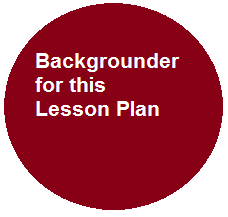Syria
Download the supplements for this lesson plan
 Syria: A Lesson in Investigation (two 40-50 min. periods or one 90-min. block)
Syria: A Lesson in Investigation (two 40-50 min. periods or one 90-min. block)
This lesson could be used in a government/civics course, a US history course, or a world history/ global studies course. Grades 9-12 (the readings may pose greater challenges to the lower grades).
Standards correlation: Common Core Standards—Reading Standards for Literacy in History/Social Studies 6-12. Grades 9-10: 1, 2, 3, 4, 6, 8. Grades 11-12: 1, 2, 3,4, 6, 7, 8, 9
Readings/resources: New York Times editorial on the struggle in Syria; four articles offering contrasting perspectives on Syria (see below); questions for investigation; Teacher’s Background. Students will need access to computers to conduct research over the internet.
Objectives:
Knowledge of the competing interests at play in the conflict in Syria
Understanding of the complexity of international conflicts
Understanding of the distinction between assertion and warranted claims
Ability to research conflicting points of view and locate corroborating evidence
First day:
1. Assign the backgrounder for the first day.
Bell-ringer: New York Times editorial, 3/20/12 (reproduced below), survey student knowledge on Syria, drawing on the backgrounder and the editorial. To the extent possible, have students address questions under “Understanding the Syrian Crisis.” Discussion of the Times editorial offers an opportunity for teacher modeling of corroboration (see notes in Teacher’s Background). Special attention should be paid to assertions and warranted claims in both sources and any conflicts between them. Note: Students will probably find uneven success in answering these questions, both at this stage and later in the lesson, depending on their sources.
2. Class to computer lab. Divide class so students read one of the four online articles or statements from:
Hillary Clinton: Remarks at a United Nations Security Council Session on the Situation in Syria
Asia Times, M. K. Bhadrakumar: Syria on the boil, US warship in Black Sea
China Daily: U.S. solution to Syria issue doomed to failure
Russia Today: Mainstream media self-censorship
Each group should answer as well as possible the questions under “Understanding . . .,” compare their responses, and note and discuss assertions and warranted claims.
3. The groups should then jigsaw so that each of the four readings are represented, and group members should compare their responses, noting each point of conflict in the articles and comparing assertions and warranted claims. Students should then discuss how they might go about resolving the conflicts. The teacher should introduce context from his/her own knowledge and research, as well as from considerations provided in the Teacher’s Background.
4. For the next day, assign students to explore specific conflicting information and perspectives by searching for more information on the internet. These might include more articles or statements in the sources already used or use of other media sources. The “Questions for Corroboration” should guide them, and they should address these questions specifically and in writing.
Other English-language sources: (London) Guardian,(London) Independent, Counterpunch.org (left-wing). History News Network publishes a range of articles on foreign affairs, India and Pakistan have English-language dailies, there is Al Jazeera, and others.
Second day:
5. Students should gather into groups again to compare the results of their research. They should attempt to reach agreement on what they consider warranted claims about the struggle in Syria and on what remains uncorroborated, make presentations to the rest of the class, discuss and debate remaining conflicts, and assess the knowledge about which they can be reasonably confident. The teacher might find it useful to record the claims of each group on a black- or whiteboard for reference.
Summary/enrichment: Assign an essay in which students focus on one country’s relationship with Syria, and how that relationship shapes its response to the rebellion.
Or,
Discuss with the class the role and effectiveness, in view of students’ research, of international bodies, first the United Nations, but also the Arab League, the Gulf Cooperation Council, and human rights organizations like Human Rights Watch.